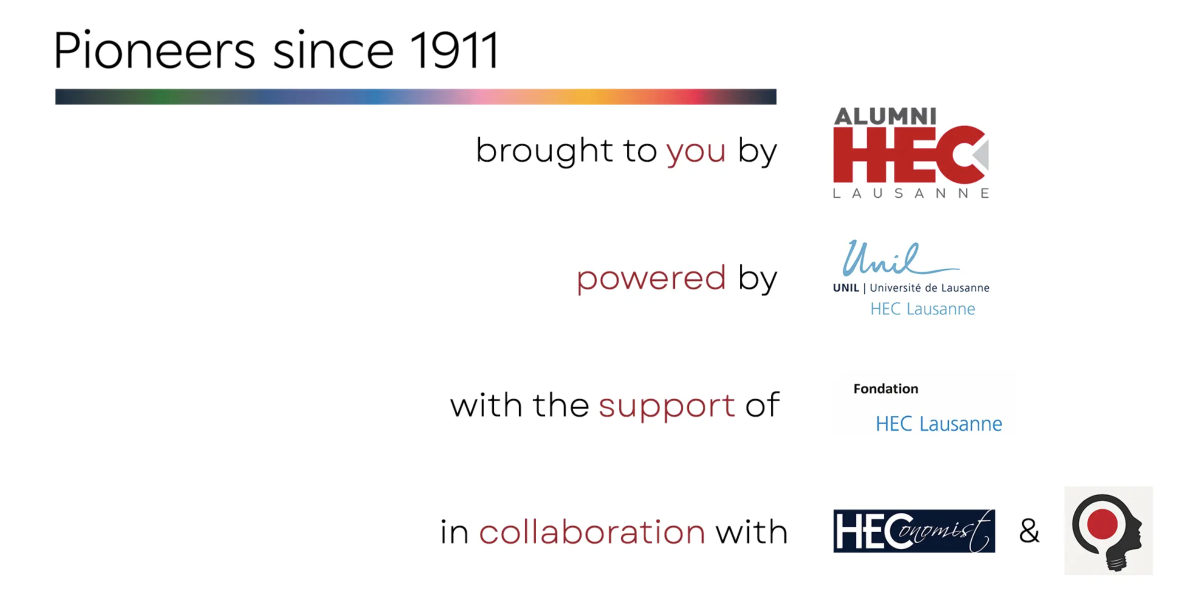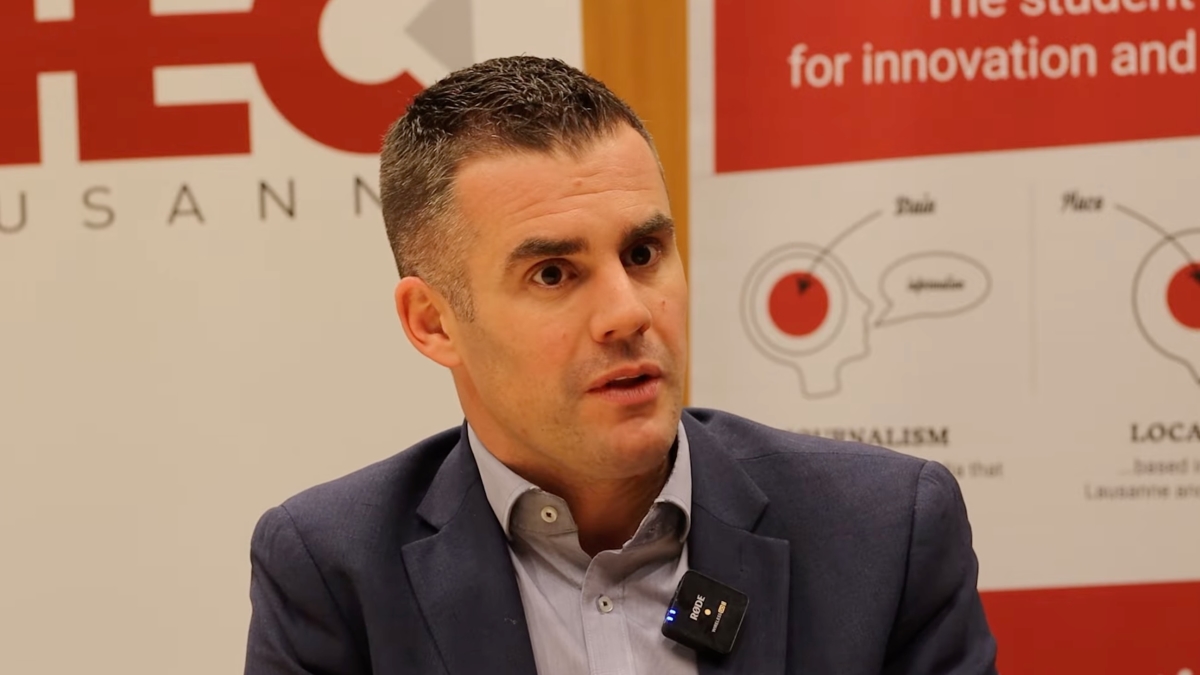14.05.2025
Special Report > Léon Walras - HEC - Taxation
The Role of Taxation Today: Interview with Mr. De Bénédictis
As part of the Pioneers since 1911 project on taxation, which began with a deep dive into the archives and a (re)discovery of Léon Walras' legacy, here is the second chapter of this special feature, focusing on taxation today.
Watch the filmed interview with Jérôme de Bénédictis (HEC '12), Member of the Vaud Grand Council and Mayor of Echandens.
In a few lines, a summary of the interview:
A Tax System Serving the Middle Class: Interview with Jérôme de Benedictis
In a context where the middle class is increasingly vocal about its discomfort with tax pressure, local politician Jérôme de Benedictis calls in this interview for a deep reform of the system. His goal: a tax system that is clearer, fairer, and better adapted to today’s social and economic realities.
Rethinking Tax Logic: Starting from Needs, Not Revenue
Unlike the traditional approach, which sets a tax amount and then allocates spending, de Benedictis proposes reversing the logic: "What public services do we want to fund, and how can taxes help achieve that?" This pragmatic perspective puts collective needs at the center of tax decisions.
Tax Scale Reform to Ease the Burden on the Middle Class
One of his flagship proposals is a 20% reduction in the tax burden for the middle class. This reform would not aim to reduce overall tax revenue, but rather to redistribute the burden more fairly.
De Benedictis criticizes the current system as overly complex, with layers of deductions, rebates, municipal coefficients, and progressive scales. He advocates for a simpler tax system with a gentler curve for middle incomes while maintaining progressivity.
A Case for Clarity and Efficiency
For the young elected official, clarity is essential to the legitimacy of taxation. He calls for increased transparency in tax brackets and public spending. Today's complexity, he argues, weakens the link between citizens and taxation—between contribution and the services received.
Municipality or Canton: Who Should Collect and Manage Taxes?
De Benedictis takes a pragmatic stance. He doesn’t push for transferring tax authority between levels of government but rather wants to determine which level is best suited for each public service. Civil protection or social services, for instance, are better managed at the cantonal level, whereas areas like sports or sustainable mobility make more sense at the municipal level.
Taxation and the Environment: A Tool for Incentives, Not Constraints
On environmental issues, he rejects punitive taxation. He believes taxes can support positive behavior—such as through incentives for home energy renovations or solar panel installation. He warns of the adverse effects of certain taxes that disproportionately impact low-income households without having a real impact on the climate.
Anticipating Disruption from AI and Cryptocurrencies
The interview also touches on technological change. De Benedictis acknowledges the uncertainty surrounding AI’s impact on jobs and, by extension, the tax base. He calls for early reflection on alternative models, possibly including taxation on productivity generated by machines.
Regarding cryptocurrencies, he highlights the lag in regulatory frameworks, the difficulty in tracking assets, and the need for international cooperation to combat fraud and excessive tax avoidance.
A Citizen-Centered Vision of Taxation
At its core, de Benedictis envisions taxation as a tool for social cohesion. Far from being a punitive burden, taxes are, to him, a political act—a contract between individuals and the community. This contract should be clear, understandable, and justifiable.
His call for a middle-class-centered tax system—built on fairness, transparency, and adaptability—resonates with growing demands for tax justice in our rapidly evolving societies.
Biography of Mr. De Benedictis
Jérôme de Benedictis is a Swiss economist and politician from the canton of Vaud, active at both municipal and cantonal levels. In 2018, he became the youngest mayor in the canton, leading the municipality of Echandens. He currently serves as president of the Green Liberal group in the Vaud Cantonal Parliament and sits on the Finance Committee. A strong advocate for fair taxation, he is also committed to regional cooperation and ecological initiatives, including the ambitious Horizon 2026 plan. Deeply rooted in his community, he combines civic engagement, a passion for sports, and close ties with the citizens.
Interview done with the student associations HEConomist and Innovation Time as well as Nadine Reichenthal et Daniel Maman




